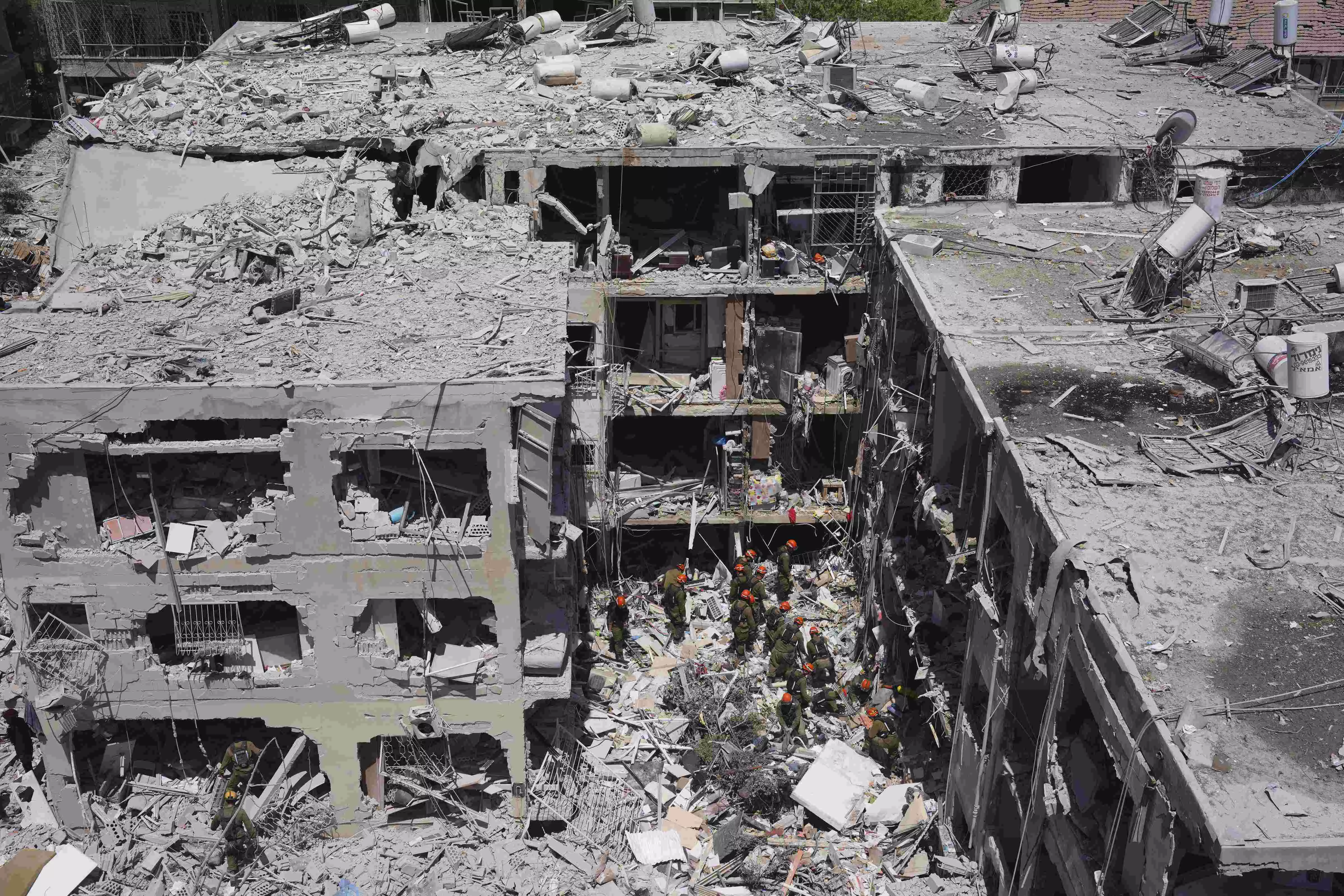
New Delhi, June 15 -- In the past couple of days, the war clouds in West Asia-always gloomy-have darkened dangerously. Israel and Iran-two longstanding adversaries- have exchanged direct strikes for three consecutive days, and things are not getting any better. The battle between the two nations is no longer about shadow war fought by proxies, covert operations, or tit-for-tat sabotage. An overt confrontation at an unprecedented scale is looming on the geopolitical horizon. Both the nations, as is known, are armed with considerable capabilities and nuclear aspirations. What is even more troubling is that both the nations operate around the fulcrum called the United States-one being a perennial ally and the other a staunch enemy.
Israel's Operation Rising Lion, which it claims is aimed at rolling back the Iranian nuclear threat, targeted sites deep inside Iranian territory, including facilities tied to Iran's controversial SPND nuclear project. In response, Tehran's Islamic Revolutionary Guards have targeted Israeli energy and military infrastructure with drone and missile strikes. At the heart of this dangerous conflict lies Israel's long-standing anxiety-made-up or otherwise-about Iran's nuclear ambitions. This is, in fact, a concern echoed by the United States as well as other Western nations. For years, Israel has warned the world of Iran's alleged proximity to nuclear weapons capability. Tehran, for its part, has denied any weaponisation plans, insisting its nuclear programme is peaceful. How credible its claims are, is unknown. Nevertheless, what is certain is that this tit-for-tat spiral-exacerbated by a collapse in diplomacy-has pushed both countries into a dangerous corner from which walking back might not be easy. It goes without saying that the implications of this escalation stretch far beyond Tel Aviv and Tehran. In the first place, it has exposed the impotence of international diplomacy. President Donald Trump's hardline posturing-"Iran must make a deal before there is nothing left"-has perhaps added fuel to the fire. It seemingly ignores the fundamental reality that sustained diplomacy, not coercion, has historically worked best in containing nuclear proliferation. Trump's decision to abandon the 2015 Iran nuclear deal (JCPOA) had gutted years of delicate negotiation, and Israel's bravado in the form of strikes may not do any good either. Europe, meanwhile, appears paralysed. The EU's statement expressing "deepest concern" reads like a bureaucratic whisper amid an inferno. Cyprus's call for an urgent EU Foreign Affairs Council meeting showcases how even frontline European states are alarmed by Brussels' inertia. NATO allies like Britain are inching closer to the conflict zone, not to mediate but to "protect assets" and perhaps offer tacit military support, which will raise the risk of wider involvement.
Interestingly, this may not just be a bilateral war. It is the final dismantling of the so-called "Axis of Resistance"-a Tehran-orchestrated network of militias and regimes aimed at deterring Israeli or Western aggression. With Hamas in Gaza severely weakened after last year's war, Hezbollah's missile stockpiles and leadership gutted, Assad's regime in Syria collapsed, and even the Houthis militarily contained, Iran finds itself increasingly isolated. This isolation might have tempted Israeli planners into a bolder campaign, hoping to decapitate the core leadership of the Islamic Republic. The deaths of IRGC generals and senior nuclear scientists in Israeli strikes may not be incidental! Now let's face the uncomfortable truth: even if Israel succeeds militarily in degrading Iran's capacities, it cannot guarantee security or regional peace. In fact, targeting the ideological spine of the Iranian regime-the generation forged in the Iran-Iraq war and the 1979 revolution-could backfire, unleashing nationalist fervour rather than submission. Civilian deaths, already reported in the strikes, will only feed the narrative of martyrdom and external aggression that hardliners in Tehran thrive on.
Meanwhile, the IAEA has issued dire warnings about the dangers of military actions targeting nuclear facilities. Any miscalculation could result in radioactive disaster. The risk of this conflict sliding into a regional war involving Lebanon, Syria, Iraq, and even Gulf states is very real. The world cannot afford to sit this one out. The United States, despite Trump's belligerence, must steer the conversation back to diplomacy. Europe must go beyond platitudes and push for urgent mediation. And regional players-from the Gulf to Turkey-must recognise that their silence is complicity in what may soon become an uncontrollable inferno. If the current spiral continues, the world may already be staring into the abyss of a nuclear threat.
Published by HT Digital Content Services with permission from Millennium Post.
